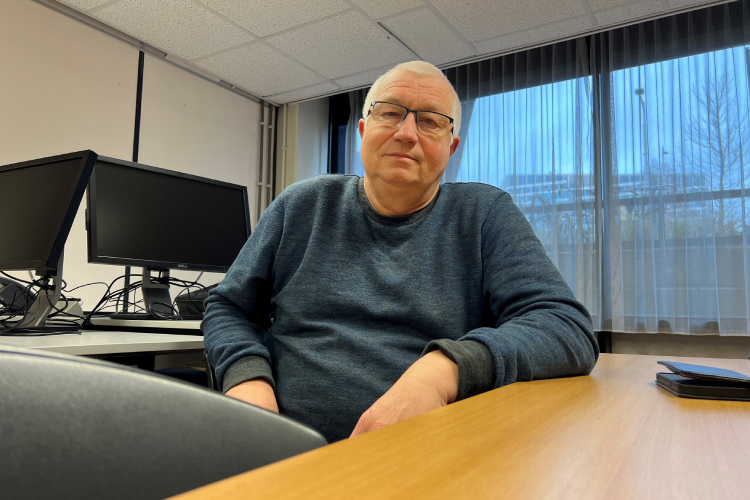There are hardly any new candidates for the works council elections in March. A problem, says chairman Henk Olijhoek, because the participation council needs fresh blood.
“People don’t realize how much fun working for the works council is”, says works council chairman Henk Olijhoek. “It’s varied, you have a real influence on VU policy and you get to know people from all over campus. As a communications employee I myself, for example, am not directly involved with research and education, but I did get to know that side of VU through the works council. At the same time, the scientists on the council learn more about support services and company formation.”
Our work matters, says Olijhoek. “A good example is our previous plan to reduce the duration of lectures from an hour and forty-five minutes to an hour and a half. In consultation with the executive board, we then organized meetings with lecturers. It turned out that many professors and assistant professors did not think the plan was a good one, so it was called off.”
According to Olijhoek, VUtureProof is another good example of what the works council can do. The project to improve the organization of VU had a false start when the board of executives surprised the council with it, but the council is now actively involved. “We also had a say in choosing the consultancy agency that’s hired to support the process.”
Nationwide problem
Nevertheless, the enthusiasm to stand as a candidate for the works council elections decreases every time. There is even a chance that elections won’t be needed because there are too few candidates. “It is a nationwide problem and not specific to VU”, says Olijhoek. “But that’s no reason to just accept it.”
Olijhoek wants an investigation into the reason for this waning interest, but of course has an idea of what the cause could be. “I myself have recently spoken with two scientists who say they cannot make time for it, that they are already so busy with their normal work, even though you get eight hours a week for it. As a council member, you can help to improve your own working conditions. By looking at a different division of the academic year for example, or at reducing the regulatory burden or easing administrative tasks.”
In the current formation, six of the 23 members are scientists and the rest are support staff – not exactly a representative council. “We have had good scientific council members who had to stop because of a change in their careers which made it no longer possible to combine their work with employee participation. The PhD student party ProVU also stopped years ago for all kinds of practical reasons. There is now a separate PhD council, but with representation in the works council you can tackle issues more structurally.”
Source of knowledge
According to Olijhoek, a representative works council is an important source of knowledge for the board. “Even if we only have advisory rights and therefore no casting vote, the board will listen to us.” That does not always go well, like with the large-scale ICT project Mars which went wrong, but according to Olijhoek the board has learned from that fiasco. “That shows in VUtureProof, for example.”
Some current works council members have been there for years. Olijhoek himself has been there since 2005, for example. “That gives continuity, but you also have to watch out for fixed ideas. That’s why we want new people so badly, with fresh perspectives. People who ask: Isn’t that possible, have you ever looked at this?. Innovation is important for the works council and employee participation in general.”
The works council elections are from 13 to 19 March. Those who want to stand for election can register until February 6 if they want to participate on behalf of one of the unions (FNV, CNV and AOb) and until February 13 for a so-called free list. Register via: Ondernemingsraad@vu.nl.
